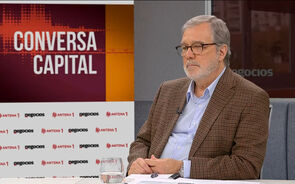The Relationship Between WorldCom and Salomon Smith Barney
1 Mensagem
|Página 1 de 1
The Relationship Between WorldCom and Salomon Smith Barney
In 1997, Salomon Smith Barney became WorldCom's exclusive employee stock option administrator. More specifically, Salomon Smith Barney's "Atlanta Brokers Group", headed by Phillip Spartis and Amy Elias, was given the responsibility to oversee all WorldCom employee stock options. Any WorldCom employee wishing to exercise his or her stock options had to do so through the Atlanta Brokers Group. The group was located at 3455 Peachtree Road in the exclusive Buckhead section of Atlanta.
Salomon Smith Barney's Atlanta Brokers Group contacted WorldCom employees with letters that were designed to build trust in the group through declarations of the group's experience and expertise in the area of employee stock options. In actuality, the group, which eventually grew to twelve employees, was young and inexperienced in dealing with stock options. The group soon became oversaturated and overwhelmed with WorldCom employee business. By 2000, this group of roughly a dozen brokers had opened 2,000 WorldCom employee accounts.
Having opened more accounts than it could adequately handle, the group began to give the same scripted advice to any employee who called in wishing to exercise his or her option. Explaining that WorldCom's stock would undoubtedly rise every year, the brokers in Atlanta always advised the employees to exercise as many options as they could and to hold on for the long term capital gains treatment.
To make matters worse for WorldCom employees, quite often, the brokers advised the employees to use Salomon Smith Barney's "credit line" to pay the high exercise price and withholding taxes associated with the "exercise and hold" strategy. The employees took the brokers' advice unaware that they were essentially borrowing money from Salomon Smith Barney and creating high risk for themselves. This arrangement led to lucrative margin interest for Salomon and high compensation for the individual brokers.
As a result of Salomon Smith Barney's irresponsible, inappropriate and unethical treatment of WorldCom employees, many employees had their entire net worth in their WorldCom stock options and stock. These employees were never explained the benefits of diversification or the danger of holding stock in only one single company.
WorldCom's stock began to plummet in the fall of 2000, but the Atlanta group continued to advise employees to hold, often dropping the name Jack Grubman, who's "Grubman Reports" consistently touted the strength of WorldCom and predicted the eventual return of the stock's value. Unfortunately, these reports failed to reveal the conflict of interest that existed between WorldCom and Salomon Smith Barney. The end result was WorldCom's stock becoming worthless.
These WorldCom employees, unsophisticated investors for the most part, were lulled into a sense of trust with a brokerage firm they had no option but to use in order to exercise their stock options. Their stock portfolios were undiversified, fully leveraged and highly risky. Their brokers were inexperienced and provided scripted advice instead of focused, individual attention. No one was informed of the risk they were taking, the protective strategies that should have been taken or of the gain Salomon Smith Barney and its brokers were realizing. As a result, many lost all the money they had saved and even more appalling many now owe Salomon Smith Barney money as a result of margin calls.
Isto esta fogo lá para os States. e nos foruns minha nossa...
Salomon Smith Barney's Atlanta Brokers Group contacted WorldCom employees with letters that were designed to build trust in the group through declarations of the group's experience and expertise in the area of employee stock options. In actuality, the group, which eventually grew to twelve employees, was young and inexperienced in dealing with stock options. The group soon became oversaturated and overwhelmed with WorldCom employee business. By 2000, this group of roughly a dozen brokers had opened 2,000 WorldCom employee accounts.
Having opened more accounts than it could adequately handle, the group began to give the same scripted advice to any employee who called in wishing to exercise his or her option. Explaining that WorldCom's stock would undoubtedly rise every year, the brokers in Atlanta always advised the employees to exercise as many options as they could and to hold on for the long term capital gains treatment.
To make matters worse for WorldCom employees, quite often, the brokers advised the employees to use Salomon Smith Barney's "credit line" to pay the high exercise price and withholding taxes associated with the "exercise and hold" strategy. The employees took the brokers' advice unaware that they were essentially borrowing money from Salomon Smith Barney and creating high risk for themselves. This arrangement led to lucrative margin interest for Salomon and high compensation for the individual brokers.
As a result of Salomon Smith Barney's irresponsible, inappropriate and unethical treatment of WorldCom employees, many employees had their entire net worth in their WorldCom stock options and stock. These employees were never explained the benefits of diversification or the danger of holding stock in only one single company.
WorldCom's stock began to plummet in the fall of 2000, but the Atlanta group continued to advise employees to hold, often dropping the name Jack Grubman, who's "Grubman Reports" consistently touted the strength of WorldCom and predicted the eventual return of the stock's value. Unfortunately, these reports failed to reveal the conflict of interest that existed between WorldCom and Salomon Smith Barney. The end result was WorldCom's stock becoming worthless.
These WorldCom employees, unsophisticated investors for the most part, were lulled into a sense of trust with a brokerage firm they had no option but to use in order to exercise their stock options. Their stock portfolios were undiversified, fully leveraged and highly risky. Their brokers were inexperienced and provided scripted advice instead of focused, individual attention. No one was informed of the risk they were taking, the protective strategies that should have been taken or of the gain Salomon Smith Barney and its brokers were realizing. As a result, many lost all the money they had saved and even more appalling many now owe Salomon Smith Barney money as a result of margin calls.
Isto esta fogo lá para os States. e nos foruns minha nossa...
- Mensagens: 1153
- Registado: 5/11/2002 1:17
1 Mensagem
|Página 1 de 1


